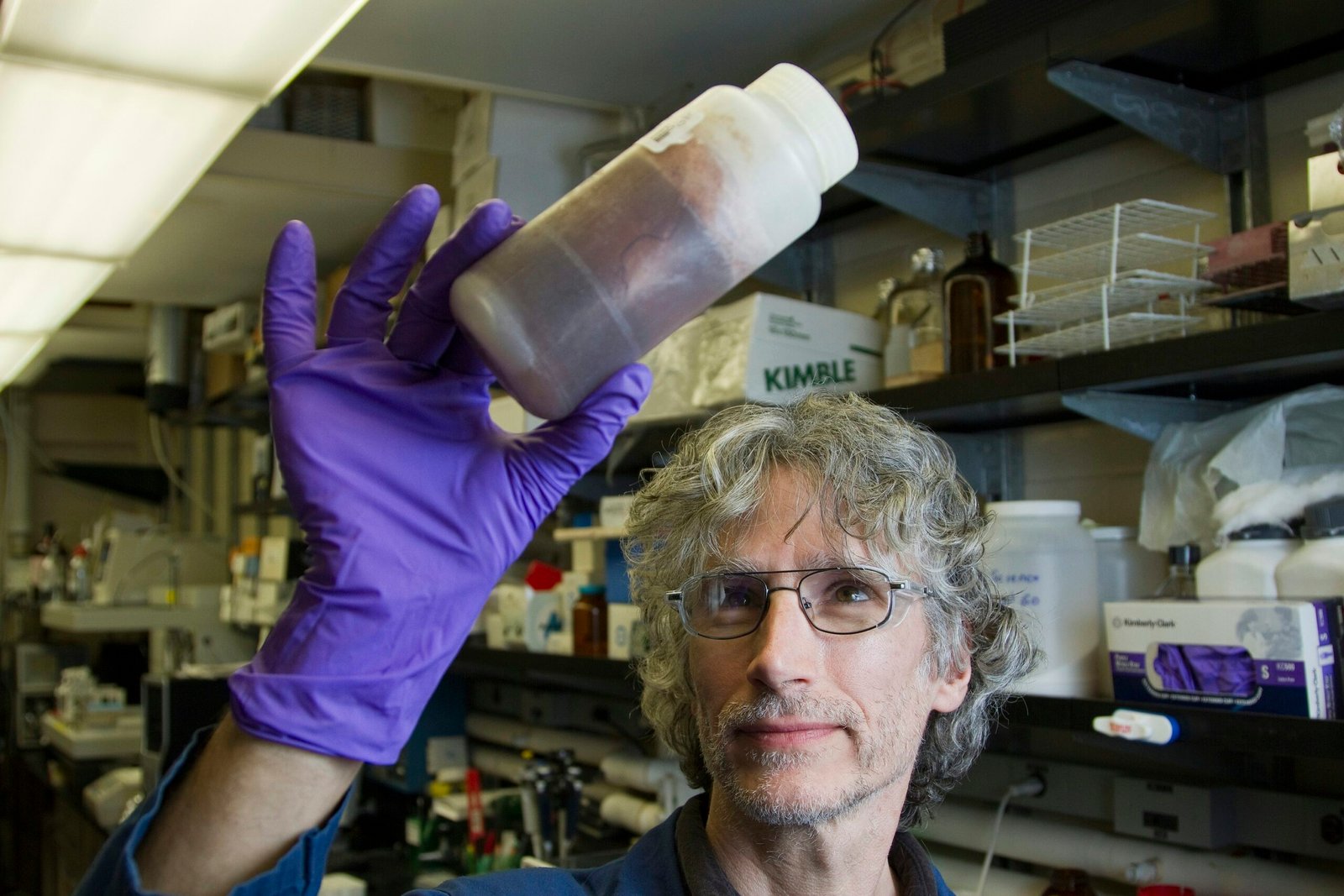Have you ever wondered if your genetic makeup could play a role in your likelihood of developing gout? Well, recent studies have indicated that certain genetic mutations may indeed increase the risk of this painful condition. In this article, we will explore the connection between genetics and gout, shedding light on how these mutations can influence the likelihood of developing this common form of arthritis. So, buckle up and get ready to discover the fascinating relationship between your genes and this notorious condition!

Understanding Gout
Gout is a type of inflammatory arthritis that affects millions of people worldwide. It is characterized by sudden and severe attacks of pain, swelling, and tenderness in the joints, most commonly the big toe. In some cases, gout can cause chronic joint inflammation and damage if left untreated. Understanding the causes and risk factors for gout is crucial in managing and preventing this painful condition.
Definition of Gout
Gout is a metabolic disorder caused by the buildup of uric acid in the bloodstream, leading to the formation of urate crystals in the joints and other tissues. Uric acid is a waste product that is normally excreted from the body through urine. However, in individuals with gout, the body either produces too much uric acid or fails to eliminate it efficiently, resulting in high levels of uric acid in the blood.
Symptoms of Gout
The most common symptom of gout is an acute attack of pain, swelling, redness, and heat in the affected joint. The pain is often described as excruciating and can last for several hours to days. Gout attacks usually occur suddenly, often at night, and can be triggered by factors such as high-purine foods, alcohol consumption, and certain medications. In between attacks, people with gout may experience periods of symptom-free remission.
Prevalence of Gout
Gout is a relatively common condition, with its prevalence increasing over the past few decades. It is estimated that around 4% of adults in the United States are affected by gout, making it one of the most prevalent forms of arthritis. Gout is more prevalent in men than women, and the risk of developing it increases with age. Other risk factors for gout include obesity, high blood pressure, diabetes, and a family history of the condition.
Role of Genetics in Health
Genetics plays a fundamental role in our health and well-being, influencing various aspects of our physical and physiological traits. It is the study of genes, which are segments of DNA that contain instructions for building and maintaining our bodies. Genetic variations can occur naturally, and certain mutations in genes can impact our susceptibility to various diseases and conditions.
Importance of Genetics
Understanding the role of genetics in health is crucial for several reasons. Firstly, genetic variations can help explain why certain individuals are more prone to developing certain conditions, such as gout, while others are not. Genetic information can also provide insights into the underlying mechanisms of diseases, leading to the development of more targeted and personalized treatments. Furthermore, genetics can help identify individuals who may be at higher risk for certain conditions, enabling them to take preventive measures or undergo early screening.
Basis of Genetic Disorders
Genetic disorders are caused by abnormalities or mutations in specific genes or chromosomes. These mutations can be inherited from one or both parents or can occur spontaneously. Genetic disorders can manifest in various ways, depending on the affected gene and the specific mutation. Some genetic disorders, such as cystic fibrosis or sickle cell anemia, are caused by a single gene mutation, while others, like gout, involve multiple genes and complex interactions.
Impact of Genetic Mutations on Physical Health
Genetic mutations can have a profound impact on physical health. They can alter the structure or function of proteins, disrupt biochemical pathways, or affect the regulation of genes. In the case of gout, certain genetic mutations can result in altered purine metabolism or impaired uric acid excretion, leading to increased uric acid levels and the formation of urate crystals in the joints. Understanding the specific genetic mutations involved in gout is essential for unraveling the disease's mechanisms and developing targeted therapies.
Genetic Basis of Gout
Considering the significant role of genetics in the development of gout, researchers have conducted numerous studies to uncover the genetic basis of this condition.
Discovery of Genetic Link
Research has shown that there is a strong genetic component to gout, with heritability estimates ranging from 40% to 70%. These findings suggest that a substantial proportion of the risk for developing gout can be attributed to genetic factors. Early studies in families with a history of gout identified patterns of inheritance, indicating that specific genes contribute to the development of the disease.
Gout Susceptibility Genes
Through genome-wide association studies (GWAS) and other genetic analyses, several genes have been implicated in the development of gout. One of the most well-known genes associated with gout susceptibility is SLC2A9, which encodes a transporter protein involved in uric acid transport in the kidneys. Other genes that have been linked to gout risk include ABCG2, SLC17A1, and GCKR. These genes play a role in purine metabolism, renal urate handling, and glucose regulation.
Role of Mutations in these Genes
Mutations in the gout susceptibility genes mentioned above can alter their function, leading to disturbances in purine metabolism and uric acid regulation. For example, mutations in SLC2A9 have been shown to reduce the excretion of uric acid by the kidneys, resulting in elevated uric acid levels in the blood. Similarly, mutations in ABCG2 can impair the transport of uric acid out of the cells, increasing its concentration in the bloodstream. These genetic mutations contribute to the development of gout by disrupting the delicate balance of uric acid metabolism.
High-Purine Diet and Gout
While genetics plays a significant role in gout development, it is important to note that lifestyle factors, such as diet, can also influence the risk and severity of gout.
Purine Metabolism and Gout
Purines are nitrogen-containing compounds found in various foods, such as organ meats, seafood, and legumes. When purines are metabolized by the body, they are broken down into uric acid. In individuals with gout, the excessive production of uric acid or the inability to effectively eliminate it leads to the accumulation of urate crystals in the joints.
Impact of High-Purine Diet on Gout
Consuming a diet high in purine-rich foods can increase the risk of gout attacks in susceptible individuals. When purines are ingested in large amounts, the body produces more uric acid, potentially overwhelming the excretion capacity of the kidneys. This can result in elevated uric acid levels in the blood and subsequent crystal formation in the joints. Therefore, dietary modifications, such as reducing the intake of high-purine foods, are often recommended as part of gout management.
How Genetics can Influence Dietary Impacts
Genetic variations can influence the body's response to purine-rich foods and its ability to metabolize and eliminate uric acid. For instance, certain genetic mutations can enhance the activity of enzymes involved in purine metabolism, leading to increased uric acid production. In contrast, mutations in genes related to uric acid transport and excretion can impair the body's ability to eliminate uric acid efficiently. Therefore, individuals with specific genetic variants may be more susceptible to the effects of a high-purine diet and have a higher risk of developing gout.

Uric Acid Metabolism and Gout
To understand the genetic basis of gout, it is essential to explore the metabolism of uric acid and the genes involved in its regulation.
Process of Uric Acid Metabolism
Uric acid is a byproduct of purine metabolism. When purines are broken down, uric acid is produced, primarily in the liver. From there, uric acid is transported in the bloodstream and eventually excreted by the kidneys. The balance between uric acid production and excretion is crucial for maintaining normal levels of uric acid in the body.
Genes Involved in Uric Acid Metabolism
Several genes are involved in the regulation of uric acid metabolism. These genes code for enzymes, transporter proteins, and other molecules that participate in the synthesis, breakdown, and excretion of uric acid. Some of the key genes involved in uric acid metabolism include HPRT1, ADH1B, and SLC22A11. Mutations in these genes can disrupt normal uric acid homeostasis and contribute to the development of gout.
Mutations and Altered Uric Acid Metabolism
Mutations in genes related to uric acid metabolism can impact the activity, function, or expression of the proteins they encode. For example, mutations in HPRT1, which codes for an enzyme involved in the recycling of purines, can lead to increased uric acid production. Similarly, mutations in ADH1B, an alcohol dehydrogenase gene, have been associated with decreased uric acid levels due to altered ethanol metabolism. These genetic variations can disrupt the delicate balance of uric acid metabolism and contribute to the development of gout.
Study Case Evidence
To further understand the genetic basis of gout, researchers have conducted numerous studies investigating the association between specific genetic variants and the risk of developing this condition.
Summary of Relevant Studies
Several genome-wide association studies (GWAS) have identified multiple genetic variants associated with gout susceptibility. These studies have examined the DNA of thousands of individuals with and without gout to identify common genetic variations that are more prevalent in gout patients. Through large-scale data analysis, researchers have identified several genes and genetic variants that contribute to the risk of developing gout.
Genetic Evidence from Gout Patients
In addition to GWAS, studies have also investigated the genetic profiles of individuals with gout to gain insights into the genetic basis of the condition. These studies have revealed that gout patients often have specific genetic variants or mutations in genes involved in purine metabolism and uric acid regulation. By analyzing the genetic makeup of gout patients, researchers can identify potential genetic markers that may be useful for diagnostic or therapeutic purposes.
Implications of Study Findings
The findings from these studies have important implications for our understanding of gout and its genetic basis. They provide evidence that genetic factors play a significant role in gout development and highlight specific genes and genetic variants that contribute to the risk of developing the condition. This knowledge can be used to improve diagnostic strategies, develop targeted therapies, and identify individuals who may benefit from early intervention or lifestyle modifications to reduce their risk of developing gout.

Genetic Testing for Gout
Given the growing understanding of the genetic basis of gout, there has been increasing interest in genetic testing as a tool for assessing an individual's risk of developing the condition.
Current State of Genetic Testing for Gout
Currently, genetic testing for gout is not a routine part of clinical practice, and there are no specific genetic tests approved for diagnosing or predicting gout. However, advances in genomics research have paved the way for the development of genetic tests that can identify certain genetic variants associated with gout risk. These tests can analyze an individual's DNA for specific mutations or variations in genes known to be involved in gout development.
Limitations of Genetic Testing
While genetic testing holds promise in identifying individuals at increased risk of developing gout, it is important to recognize its limitations. First, not all cases of gout can be attributed to genetic factors, as lifestyle and environmental factors also play a role. Additionally, the predictive value of genetic testing for gout risk is currently limited, as many of the identified genetic variants only confer a small increase in risk. Finally, genetic testing may raise ethical considerations, such as patient confidentiality and potential discrimination based on genetic information.
The Future Prospects of Genetic Testing
As our knowledge of the genetic basis of gout continues to expand, the use of genetic testing for gout risk assessment may become more common in the future. With ongoing research and the inclusion of additional genetic markers, the predictive accuracy of genetic tests for gout risk may improve. Furthermore, advancements in technology and costs reduction may make genetic testing more accessible and affordable for individuals who wish to assess their genetic predisposition to gout.
Gene Therapy for Gout
Gene therapy is an experimental approach to treating genetic diseases that involves modifying or replacing faulty genes to restore normal function. While gene therapy for gout is still in its early stages, it holds promise as a potential treatment option for individuals with severe or refractory gout.
Current Progress in Gene Therapy
Several preclinical studies have explored the potential of gene therapy for the treatment of gout. These studies have focused on targeting specific genes involved in uric acid metabolism or immune system regulation. For example, gene therapy approaches aiming to increase the expression of genes involved in uric acid excretion or decrease the production of uric acid have shown promising results in animal models.
Potential of Gene Therapy for Gout
Gene therapy holds potential in addressing the underlying genetic defects that contribute to gout development. By delivering therapeutic genes into the body, it may be possible to correct or bypass the genetic mutations responsible for disrupted purine metabolism or impaired uric acid excretion. Gene therapy has the potential to provide long-lasting or even permanent relief from gout symptoms, reducing the frequency and severity of gout attacks and improving the quality of life for affected individuals.
Challenges in Developing Gene Therapy for Gout
While gene therapy offers exciting possibilities for the treatment of gout, there are significant challenges that need to be addressed. One challenge is delivering the therapeutic genes to the correct target cells and achieving sufficient gene expression. Additionally, the safety and long-term effects of gene therapy need to be thoroughly evaluated. Gene therapy strategies also need to consider the complex genetic interactions and mechanisms involved in gout and develop approaches that can effectively address the underlying genetic abnormalities.
Knowledge of Gout Genetics in Healthcare
The understanding of gout genetics can have practical applications in healthcare, particularly in the diagnosis and treatment of the condition.
Application in Diagnosis
Genetic testing and knowledge of the specific genetic variants associated with gout can aid in the diagnosis and classification of the disease. Identifying specific genetic mutations can provide additional evidence for the presence of gout in individuals with clinical symptoms. In cases where the diagnosis is uncertain, genetic testing can help confirm or exclude gout as the underlying cause of the symptoms.
Application in Treatment
Understanding the genetic basis of gout can guide treatment decisions and personalized management strategies. For example, individuals with specific genetic variants that impact uric acid metabolism may benefit from targeted therapies aimed at normalizing uric acid levels. Additionally, genetic information can help identify individuals who are at higher risk of developing severe gout or experiencing frequent attacks, allowing for more aggressive treatment interventions.
Educating Patients about Genetic Risks
Knowledge of the genetic basis of gout can empower healthcare providers to educate patients about their individual risks and potential lifestyle modifications. By incorporating genetic information into treatment discussions, healthcare professionals can help patients make informed decisions about their diet, alcohol consumption, and medication use. Additionally, genetic counseling can provide individuals and their families with a better understanding of the role of genetics in gout and support proactive measures to minimize the risk and impact of the disease.
Concluding Thoughts
The role of genetics in gout is becoming increasingly evident, with numerous studies highlighting the genetic basis of this condition. Genetic variations and mutations impact the metabolism of uric acid and purines, influencing an individual's susceptibility to gout. Although the precise mechanisms by which genetic mutations contribute to gout are not fully understood, expanding knowledge of the genetic basis of gout holds promise for advancing diagnostic strategies, treatment options, and personalized care. Continued research and collaboration in this field will be critical in improving our understanding of gout genetics and developing interventions to prevent and manage this debilitating condition.
Debate about Genetic Impact on Gout
The genetic impact on gout remains a topic of ongoing debate and research. While the evidence suggests a strong genetic component to gout development, the interplay of genetics with lifestyle and environmental factors is complex. Gout is a multifactorial disease, and genetic variations alone may not be sufficient to cause the condition. Further research is needed to unravel the precise genetic mechanisms and their interactions with other risk factors to fully understand the genetic impact on gout.
Impact of Lifestyle Changes on Gout
While genetics play a role in gout susceptibility, lifestyle factors, such as diet and alcohol consumption, also significantly contribute to gout development and management. Modifying lifestyle habits, including reducing consumption of high-purine foods, maintaining a healthy weight, and avoiding excessive alcohol intake, can help prevent gout attacks and reduce the severity of symptoms. Lifestyle modifications, in combination with medical interventions, can have a substantial impact on managing gout and improving overall health.
Future Research Directions
As our understanding of gout genetics continues to evolve, several avenues for future research become apparent. Investigating the mechanisms by which genetic variations alter uric acid metabolism and purine breakdown can provide insights into potential therapeutic targets. Longitudinal studies assessing the role of gene-environment interactions in gout development can further elucidate the complex interplay between genetics and lifestyle factors. Additionally, clinical trials and real-world studies evaluating the effectiveness and safety of gene therapy approaches may pave the way for innovative treatments and improved outcomes in gout patients.